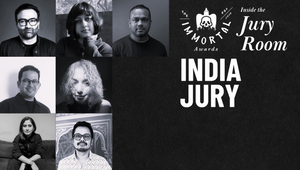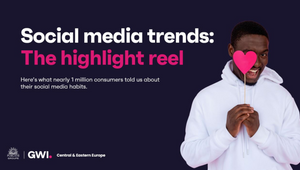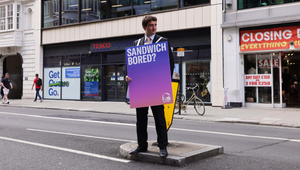
Shaping Tomorrow: Key Insights from SXSW

An annual event that takes place during March in Austin, Texas, SXSW Festival is arguably the premier gathering for the world’s leading minds in technology, music, and film. We sat down with participants of SXSW 2024, Barbara Grabiwoda, chief strategy officer at PXP CEE, Publicis Le Pont and Paweł Piątek, chief delivery officer at PXP CEE, Publicis Le Pont to explore what everyone wants to know: what are their key insights from the festival, and what does the future hold for our industry?
Q> The recent years were characterised by returning to the offices, handling economic uncertainties, a heightened focus on climate issues, and of course the advent of AI and a whirlwind of technological advancements. What were your initial insights at SXSW, what will indicate our direction for the future?
Barbara> No doubt, it is technology. As Amy Webb pointed out at the festival, general purpose technologies (GPT) have the power to profoundly shape our world and economy, much like the steam engine and the Industrial Revolution in the past. As the GPT-s of today have started converging, tech creates leaps, creating a tech supercycle driven by three elements: AI, Connect ecosystem of things, and Biotechnology. This convergence of technologies is driving exponential progress: by 2050 we’ll experience 100 years of progress at today’s pace every five years.

Paweł And the wave that’s coming is so intense that it will reshape our human existence. As part of the 'GEN T' or transition generation, our society, how we connect, work, and live will look very different after the transition completes its cycle. What implications does this hold for our future operations? As Lisa Su and Ryan Patel said: “Technology changes all the time but if we learn how to solve problems, we are going to do great things.” And I agree with them. Resilience means recognising that life doesn’t just happen to us. It’s reclaiming agency and knowing that we can navigate the adversity that comes our way. Resilience is not about survival but thriving. Resilience isn’t something that you do, it’s something that requires inner transformation.
Q> Which AI and related advancements do you find most significant?
Paweł> The ability of humanity is being elevated thanks to technology. Peter Deng, VP at OpenAI gave an analogy of Chat GPT being a tireless professor: it opens up more of what we’re fundamentally curious about and helps us to be more productive. And what if we would do that on our PC instead of going to the cloud (ie. Chat GPT)? The idea that everyone will have their own AI capability, operating their own data in a private manner is not just an idea. We are super close to AI PCs.
Barbara> In Amy Webb’s session, she mentioned that according to recent developments, the future calls for a shift towards gathering sensory data in addition to text-based information. This data will fuel large action models that predict and guide future actions. Emerging technologies that she coined connectables*, such as the Apple Vision Pro, are paving the way for a digital twinning of our physical world, signalling the beginning of the Experiential Age. Concepts like Face Computers are poised to read intentions, leading a race among companies for hardware dominance in the era of experiential technologies and the Internet of Senses.
Q> How should company leaders navigate these changes ahead?
Barbara> The first thing we need to remember about AI is accountability. The speed and scale of AI incentivise more bias, not less, and we need to be accountable for what AI drives and creates. This holds true in our field. How do we build trust in AI for advertising? AI might expose your brand's sensitive data. Consumers often have little insight into the inner workings of AI-driven advertising, which can result in fear and distrust. It is crucial to clearly explain the utilisation of AI and the protection of consumers' data. Moreover, there is a need to train and empower employees to effectively utilise AI in their tasks, while promoting ethical AI practices. Secondly, there is a pressing need for a new operating system to effectively adapt to the changes AI will bring. Drawing from Ian Bearcraft’s insightful observation, the mental models of yesterday are starting to collide with the technology models of tomorrow. As he said: “You don’t rise to the level of your expectations. You fall to the level of your systems.”. I agree with Ian Bearcraft’s opinion that poor leadership, holding on to old systems at all costs, and tech-first mindset are a bigger threat to jobs than AI.
Paweł> Navigating this era of exponential progress demands a dual focus: embracing the technological advancements shaping our world, while staying grounded in the core values and human connections that define us. Considering the next steps for navigating the tech supercycle:
1. Drive innovation, if necessary, establish a specialized department for managing transition.
2. Maintain competitive advantage and sustainable growth. Map your value network, and as it continues to evolve, make sure you don’t miss new elements.
3. Stay active, we can and should be prosperous.
Q> With technology advancing rapidly, how do you see the teams of the future and humans within them?
Paweł> Organisations traditionally view employees as embedded within their specific departments, everyone with a certain set of skills related to their job task. If we go beyond the idea of jobs? As Ian Beacraft said, we enter the era of 'Creative Generalists'. Individuals possessing a diverse range of interests and hobbies that can now be leveraged thanks to AI. Most important skill for the future is how you orchestrate the tools at your disposal to do the work for you. We have already begun tailoring individualised frameworks, custom automations, and specialised 'HUBs' for our customers at Publicis Groupe, but there is more to explore. By shifting away from conventional job frameworks towards a skill-centric approach, where people are fluid and move across departments, and human expertise integrates seamlessly with AI, fosters dynamic and impactful teams, unlocking new value.

However, it is just one part of the story. Amy Gallo’s presentation on the importance of healthy conflicts gave a lot to reflect on. Rather than being forced to decide between striving for a 'perfect team' with an artificial harmony or an 'all out brawls', teams should aim to navigate between them. Encouraging healthy conflicts allows teams to explore diverse perspectives and advance towards their goals, all the while learning to sidestep unnecessary drama.
Barbara> Humanity lies in connectivity and it’s fundamental to keep real relationships in the face of the current, unprecedented tech shift. Esther Perel and Brené Brown pointed to a deeper issue of connectivity in the age of technology and artificial intimacy: while we’re more connected than ever, there’s a prevailing sense of loneliness. Modern loneliness masks as hyperconnectivity. Our goal should be to use technology not as a crutch for hyperconnectivity but as a tool to deepen genuine human connections. Because the quality of your relationship defines the quality of our life.
*Webb coined connectables as the network of interconnected devices that communicate and exchange data to facilitate and fuel the advancement of A.I.”















